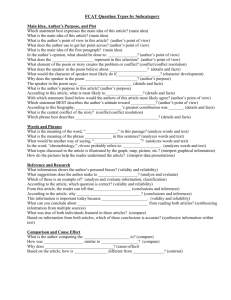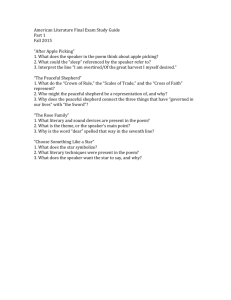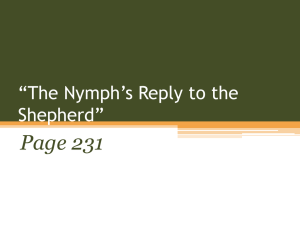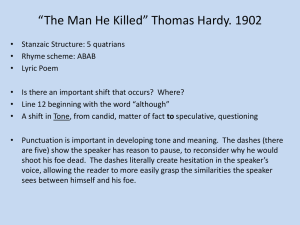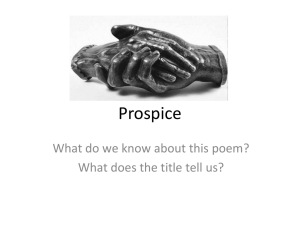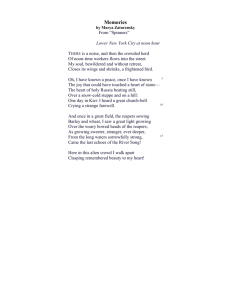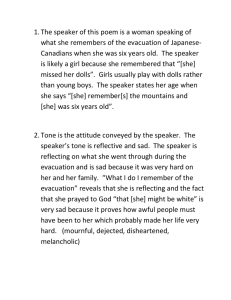KEY
advertisement
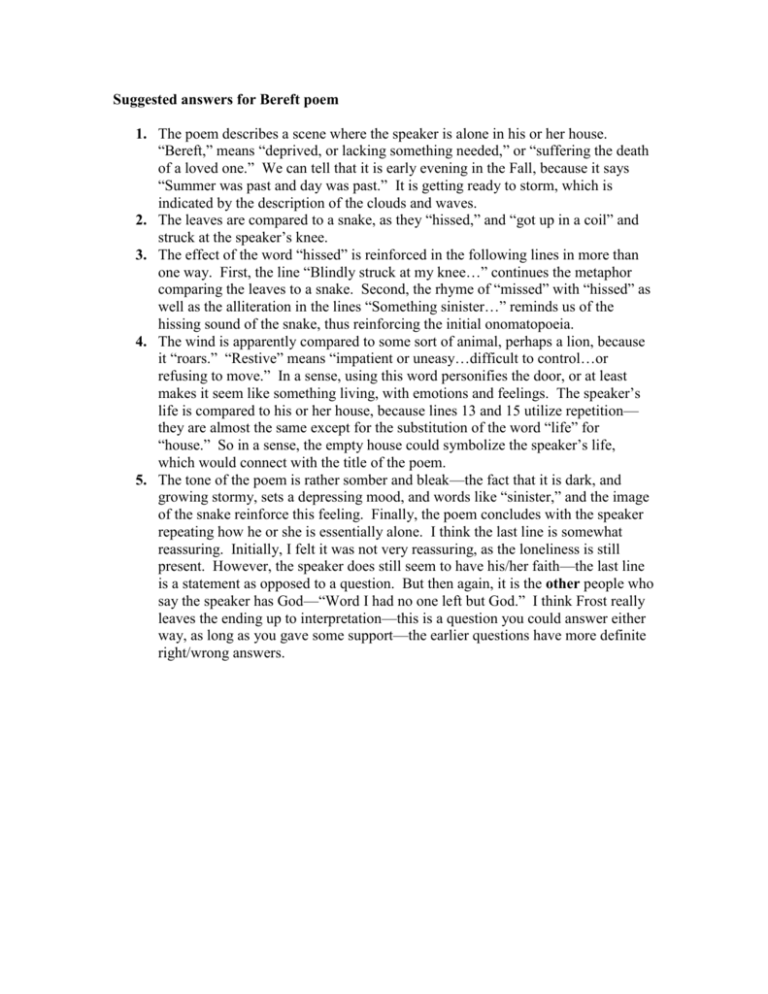
Suggested answers for Bereft poem 1. The poem describes a scene where the speaker is alone in his or her house. “Bereft,” means “deprived, or lacking something needed,” or “suffering the death of a loved one.” We can tell that it is early evening in the Fall, because it says “Summer was past and day was past.” It is getting ready to storm, which is indicated by the description of the clouds and waves. 2. The leaves are compared to a snake, as they “hissed,” and “got up in a coil” and struck at the speaker’s knee. 3. The effect of the word “hissed” is reinforced in the following lines in more than one way. First, the line “Blindly struck at my knee…” continues the metaphor comparing the leaves to a snake. Second, the rhyme of “missed” with “hissed” as well as the alliteration in the lines “Something sinister…” reminds us of the hissing sound of the snake, thus reinforcing the initial onomatopoeia. 4. The wind is apparently compared to some sort of animal, perhaps a lion, because it “roars.” “Restive” means “impatient or uneasy…difficult to control…or refusing to move.” In a sense, using this word personifies the door, or at least makes it seem like something living, with emotions and feelings. The speaker’s life is compared to his or her house, because lines 13 and 15 utilize repetition— they are almost the same except for the substitution of the word “life” for “house.” So in a sense, the empty house could symbolize the speaker’s life, which would connect with the title of the poem. 5. The tone of the poem is rather somber and bleak—the fact that it is dark, and growing stormy, sets a depressing mood, and words like “sinister,” and the image of the snake reinforce this feeling. Finally, the poem concludes with the speaker repeating how he or she is essentially alone. I think the last line is somewhat reassuring. Initially, I felt it was not very reassuring, as the loneliness is still present. However, the speaker does still seem to have his/her faith—the last line is a statement as opposed to a question. But then again, it is the other people who say the speaker has God—“Word I had no one left but God.” I think Frost really leaves the ending up to interpretation—this is a question you could answer either way, as long as you gave some support—the earlier questions have more definite right/wrong answers.

